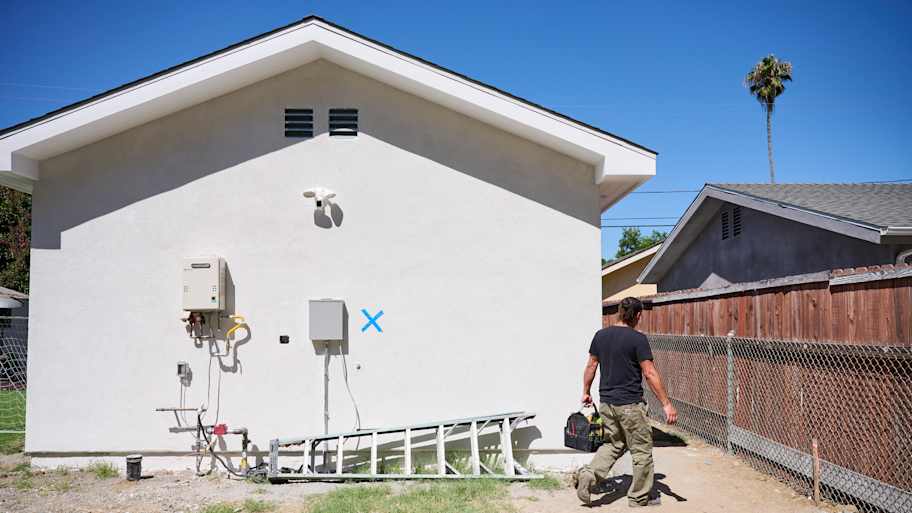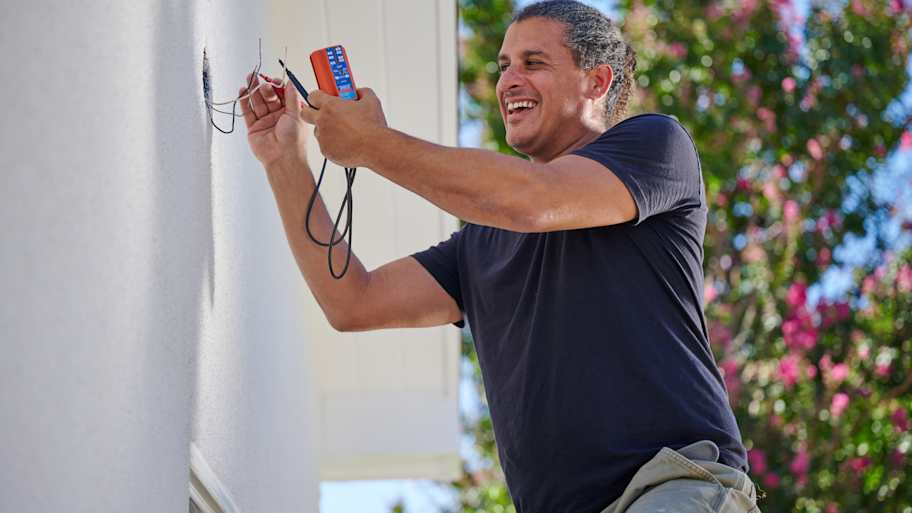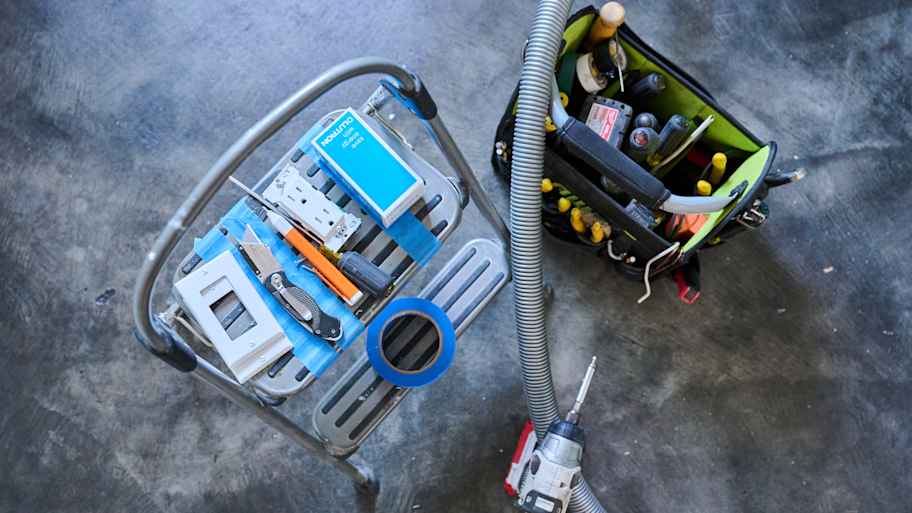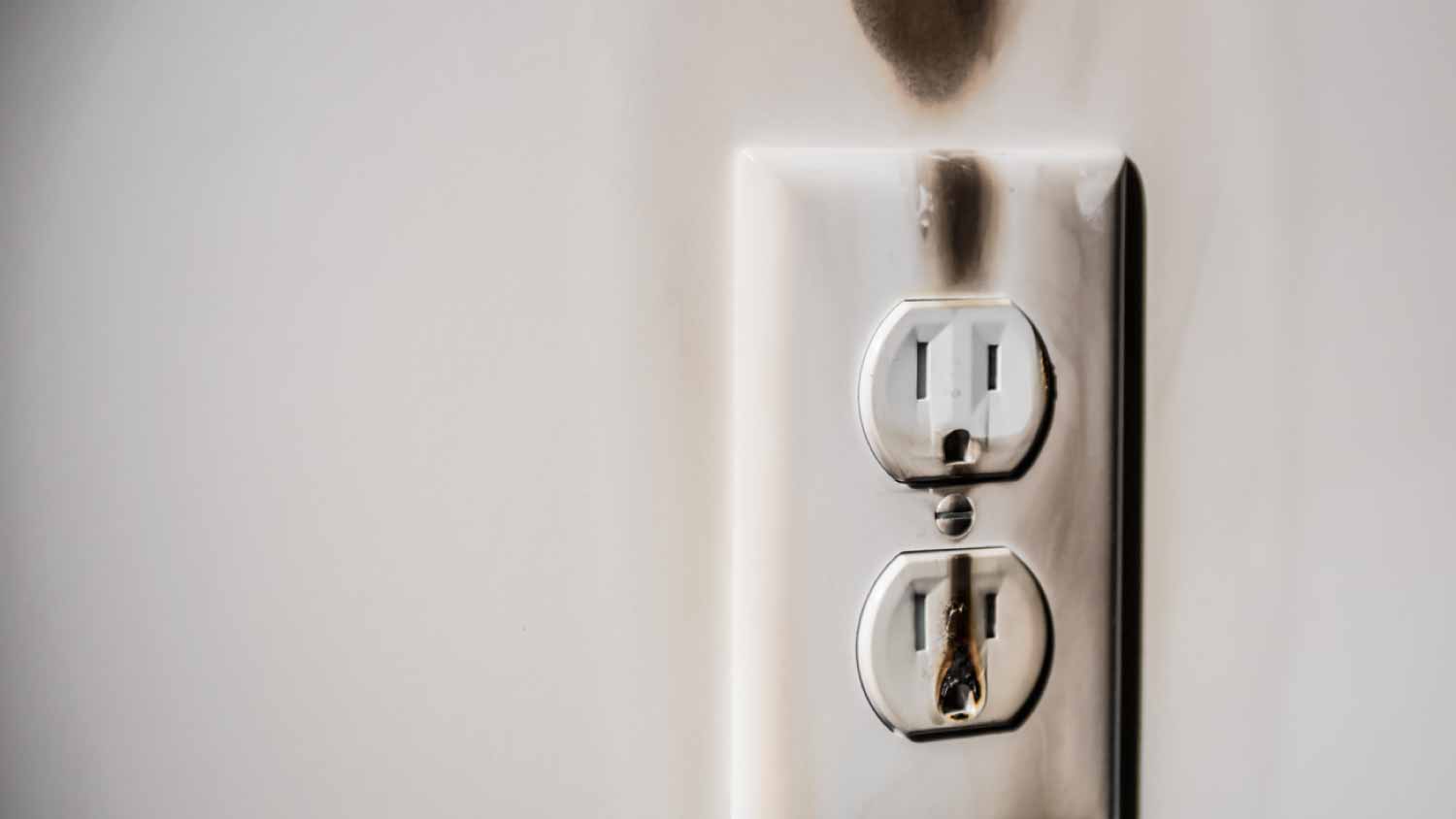Who To Call for Electrical Problems and When To Get Help
Find out watt’s up with your electricity


Wondering who to call for your home electrical problems? It sounds like it’s time to hire a local electrician. Don’t hesitate to call a reputable electrician in your area for help with minor to major electrical issues to ensure your personal and home’s safety. When you’re dealing with wiring, circuits, and other components, hiring a pro electrician should be a top priority.
Benefits of Hiring an Electrician for Electrical Problems

Whether your lights are flickering, your wiring is fraying, or you’re experiencing more serious electrical problems, electricians are trained to diagnose and repair your home’s electrical systems. Hiring an electrician offers the following advantages:
Education and Training
Specific requirements vary from state to state, but most require electricians to complete several years of specialized training and work experience before they can take an exam and earn a license. By hiring a licensed electrician, you’re ensuring that the person working on your home’s electrical system has the right education and training to do the job.
Knowledge of Regulations and Codes
The same training and licensing process also ensures that licensed electricians are able to recognize and adhere to various local electrical codes and regulations. Codes aren’t necessarily laid out for every situation, but an electrician can draw on their knowledge and experience to ensure the compliance and longevity of your home’s electrical system.
Safety

When handled incorrectly, electrical work can be dangerous. Your local electrician knows how to minimize hazards whether they’re working on a repair or a new installation. They also possess the proper safety equipment and can make recommendations for any other electrical hazards they notice.
Quality of Work
Electricians are committed to providing services with exceptional quality, which translates not only to better safety but also an adherence to the industry’s best practices. That means you can expect consistent and detail-oriented project results.
Cost Savings
Even if you may pay more upfront for the cost of an electrician, they can quickly identify and address issues with long-term solutions and deliver cost-saving benefits down the road. In addition to resolving electrical problems before they escalate into more costly projects or repairs, electricians take preventative measures with their repairs and upgrades so that problems are less likely to show up at all.
Can You DIY Electrical Problems?
Unless you’re a trained electrician yourself, handling electrical problems on your own isn’t usually recommended. There are a few electrical-related tasks you can take on yourself, such as troubleshooting and repairing a noisy ceiling fan or swapping out a light fixture.
However, getting into wiring, circuits, and other advanced projects can be risky territory that could result in shocks, electrical fires, and other accidents. At best, you can visually troubleshoot any issues and pass on your findings to the electrician.
Can You Contact the Power Company for Electrical Problems?
Electricians and power companies both work with electrical systems, but they fulfill different purposes. There aren’t many circumstances where you can call a power company to handle an electrician’s job, and vice versa.
When To Call the Power Company
The power company is responsible for providing power to your home and others on the grid. You’ll usually only need to contact the power company when you need to report issues with your electrical service, such as downed power lines or power outages, but not if the issues deal with only your home’s specific electrical system. These kinds of calls usually won’t cost you anything.
If you’re not sure what the root cause of your electrical problems are, you can call the power company for troubleshooting tips and to determine if your problem requires an electrician.
When To Call An Electrician
In most cases outside of power outages, you’ll likely need to hire an electrician, which means you also have to pay for the service. If you notice any of the following, it’s time to call a local electrician:
Flickering or randomly dimming lights
Breakers that trip frequently
Lack of three-prong outlets
Shocks when handling minor electrical chores
Insufficient outlets throughout your home
Hot-to-touch or burnt switches or outlets
Lack of ground fault circuit interrupters in kitchens or bathrooms
You should also call an electrician following any emergencies, such as electrical fires, but calling 911 is always the first step in an emergency.
How Do Electricians Handle Electrical Problems?
When an electrical issue sparks a call to a pro, an electrician has an in-depth approach to accurately diagnose the root cause. They’ll start by conducting a visual inspection to look for any signs of problems, such as frayed wires or damaged outlets, to give them a basic idea of the underlying issue.
From there, electricians use a variety of tools and tests, including electrical meter tests, proper grounding tests, circuit breaker capacity tests, and more. Once they identify the problem, they can repair or replace the damaged components or upgrade parts of your electrical system to help reduce future issues and meet safety standards.





- Home Generator Repair
- Lamp Repair
- Electric Repair
- Generator Installation
- TV Antenna Services
- Emergency Electricians
- Commercial Electricians
- Attic Fan Installation
- Attic Fan Repair
- Exhaust Fan Installation
- Electric Inspectors
- Subcontractors
- Electrical Construction
- EV Charger Installer
- Chandelier Installation
- Doorbell Installation
- Bathroom Fan Installation
- Ring Installers
- Electrical Panel Upgrade
- Why Hire an Electrician? Top Reasons to Consider
- The Ultimate Home Inspection Electrical Checklist
- 11 Questions to Ask an Electrician Before Making Your Hiring Decision
- What Is an Electrical Inspection and When Do You Need One?
- How To Upgrade Your Electrical Panel Safely
- Shield Yourself From These 6 Electrician Scams
- How Do I Check If An Electrician Is Licensed?
- How to Hire the Best Electrician for Your Project
- How to Wire a Detached Garage and Why You Should Leave It to the Pros
- What is an Electrical Emergency? How To Handle To Protect Your Home










